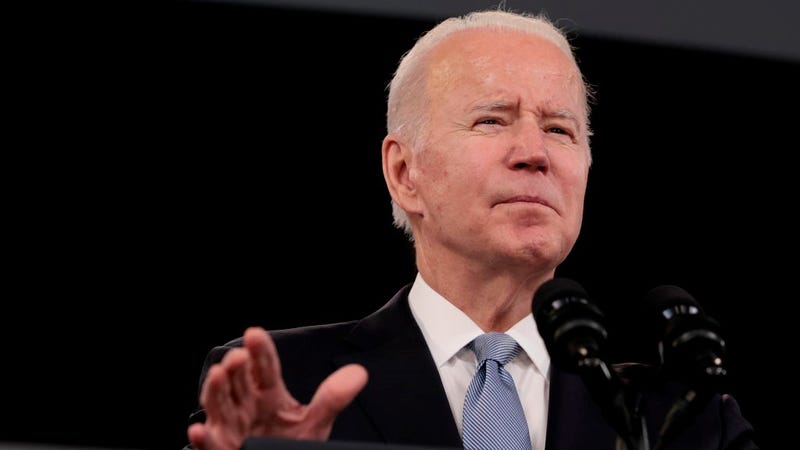
President Joe Biden signed an executive order on Friday seeking to release $3.5 billion of frozen Afghan funds that have been held in the United States for relatives and families of victims from the Sept. 11, 2001 attacks, and an equal amount to be used for humanitarian relief in Afghanistan.
It was previously unclear what would happen to the $7 billion in Afghan central bank funds remaining in the United States after the Taliban seized power from the Afghanistan government in the summer.
The Biden administration froze the Afghan funds that were at the Federal Reserve in New York, as it wasn't known who had legal authority to gain access to that account.
Initially, the Taliban claimed the right to the money and demanded that it all be released.
The United Nations reports that a majority of the 40 million people in Afghanistan will suffer severe hunger throughout the winter and many people will die. Humanitarian organizations have been pushing the Biden administration to release the funds and help where they can.
"The frozen funds are the reserves of the Afghan central bank. This should be totally unfrozen and transferred to [the] Afghan bank as reserves. We don’t want what the [United States] is planning," Suhail Shaheen, the Taliban’s designated U.N. representative, told The Washington Post.
A similar message towards Biden and the United States was reiterated by Abdullah Azzam, the secretary to Taliban Deputy Foreign Minister Abdul Ghani Baradar.
"Biden doesn’t have the right to pay from Afghans’ assets the ransoms of those whom the Afghans have not killed. American President should not prove his generosity by paying from others wealth," Azzam tweeted.
The United States has provided more than $500 million in emergency aid money through the United Nations since August to provide food, shelter and health care.
Foreign aid had provided about 75% of Afghanistan's budget prior to the Taliban taking over, and no country has recognized the Taliban as the legitimate government of Afghanistan. The county's banking system has been greatly affected since the funds were frozen and has caused an economic collapse.
The New York Times reported in September that a large group of relatives of victims of the Sept. 11 attacks "persuaded a judge to dispatch a United States Marshal to serve the legal department of the Federal Reserve of New York with a “writ of execution” to seize the money."
Another Sept. 11 group that filed similar lawsuits asked for a share of the Afghan funds in November.
“I lost my wife on 9/11 due to the Taliban’s support for terrorism,” Ramon Melendez Sr., a plaintiff in the case, said. “I became a single parent to two of my four sons and then lost my house. I have never received any money against my judgment. I think some money should go to humanitarian relief for the Afghan people but I also want my legal judgment to be fully honored.”
An administration briefer said, "we are going to be ensuring that there are very robust controls in place," if the plan is approved. "It is not going to the Taliban, it is going to be used for the benefit of the Afghan people."


